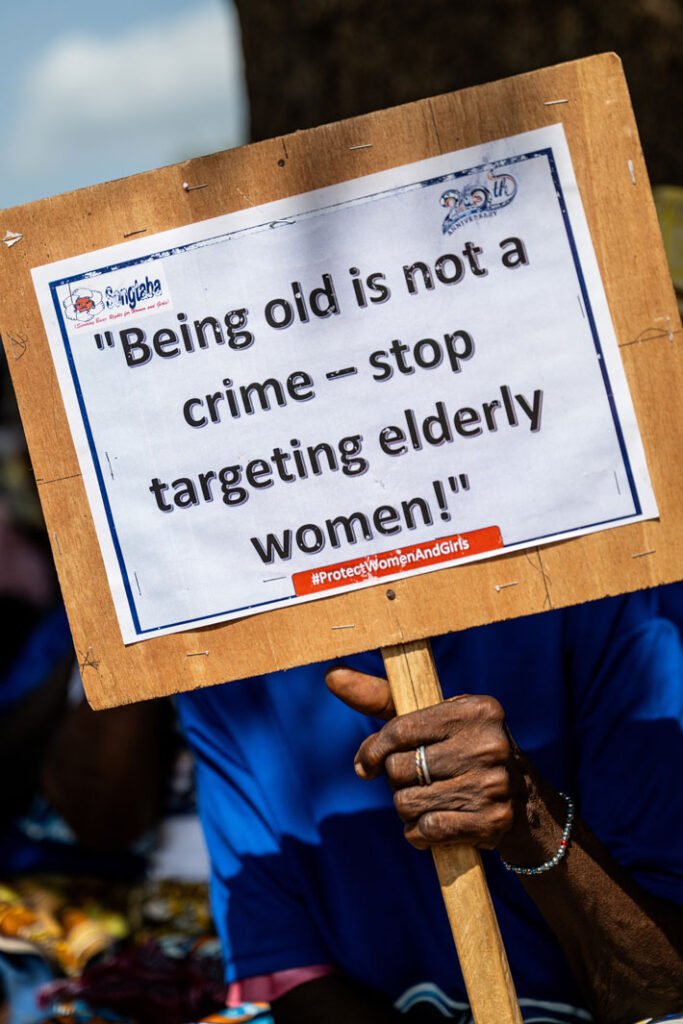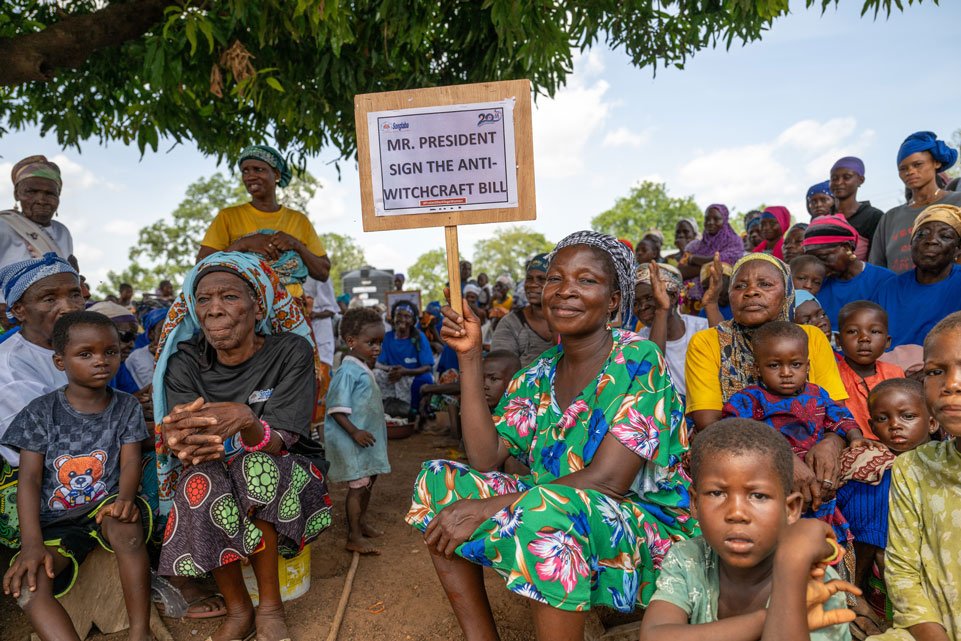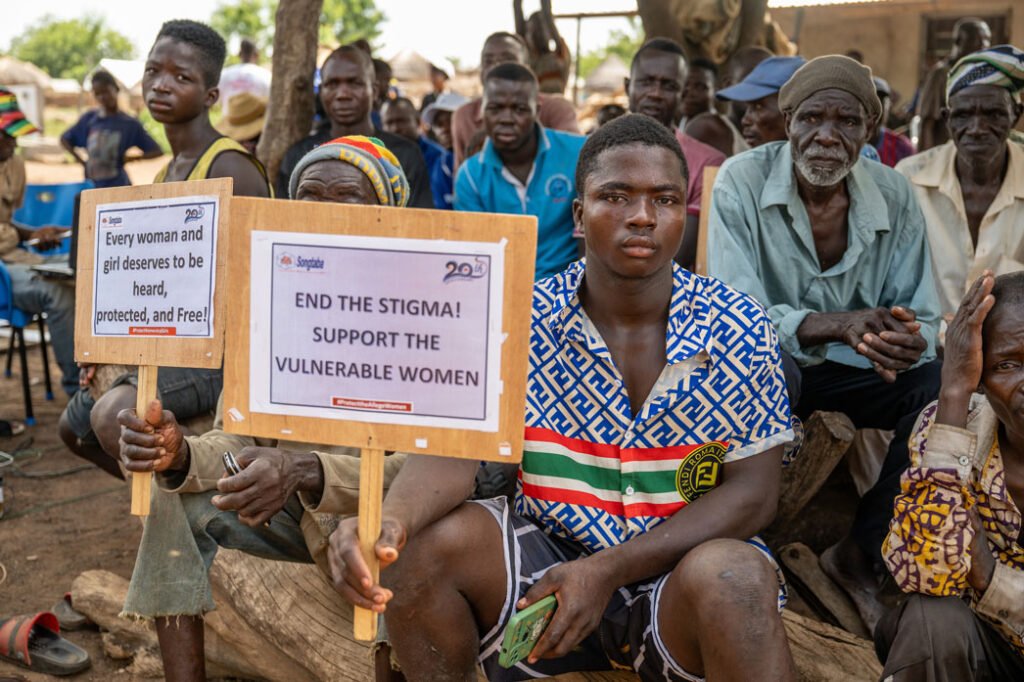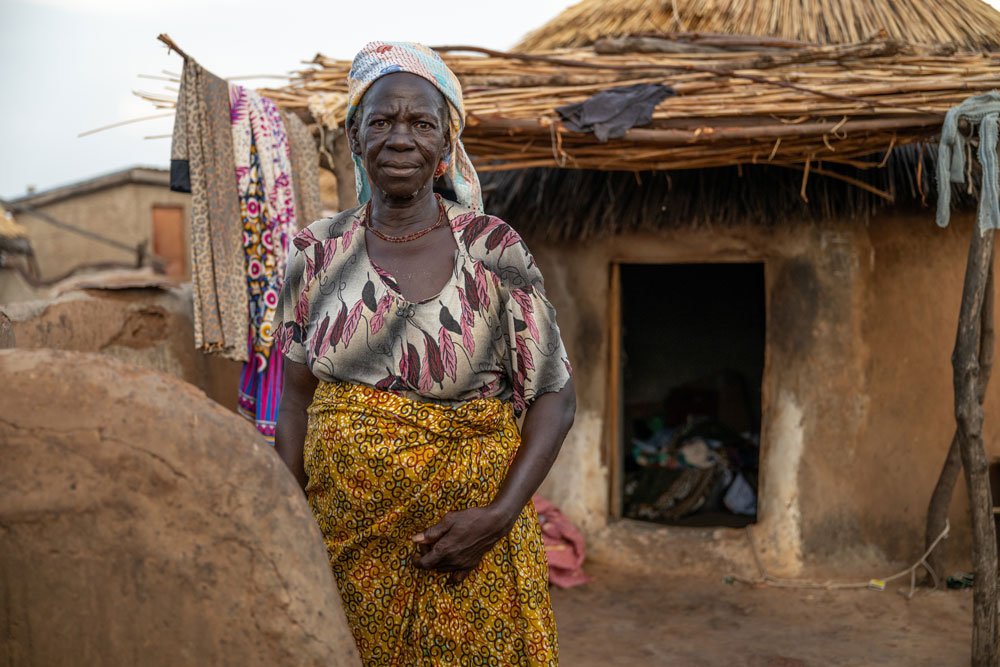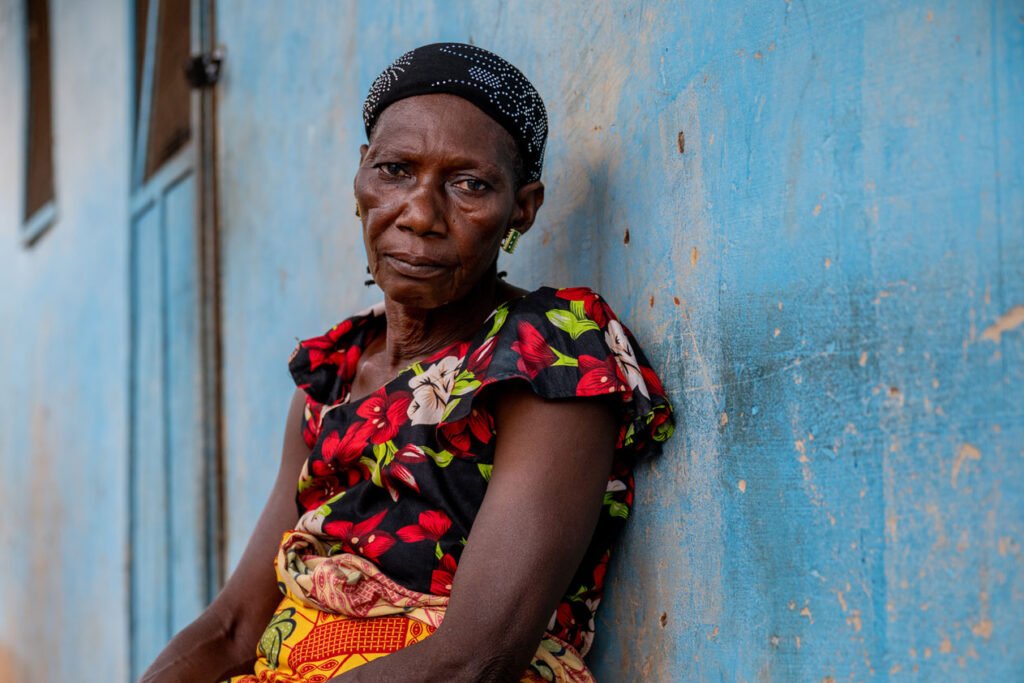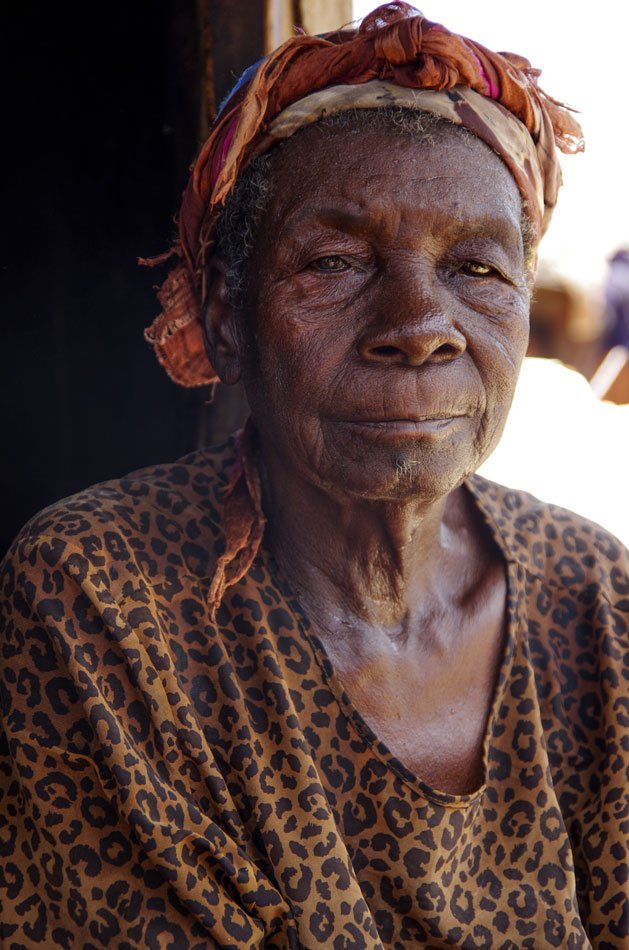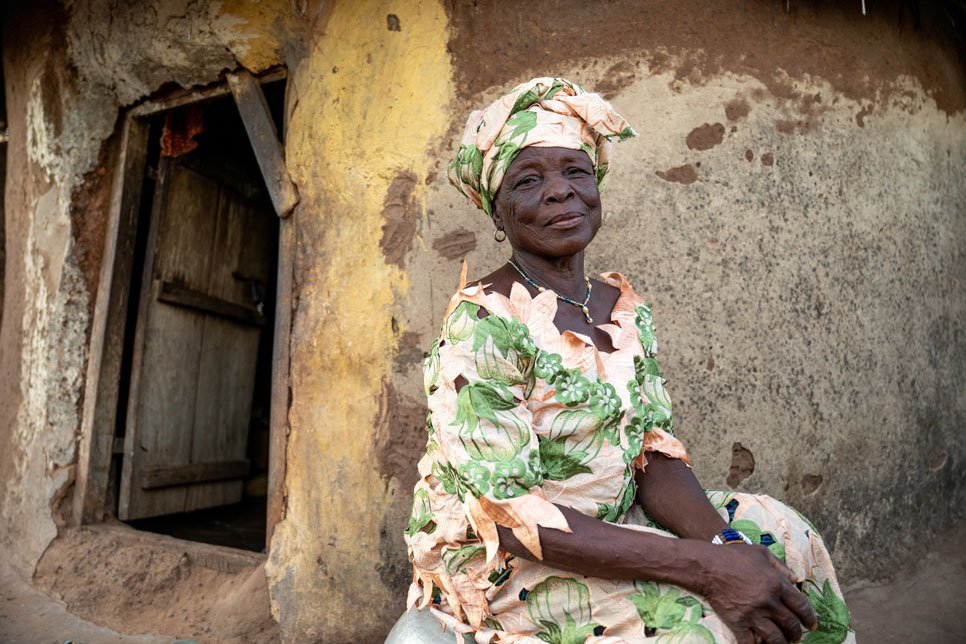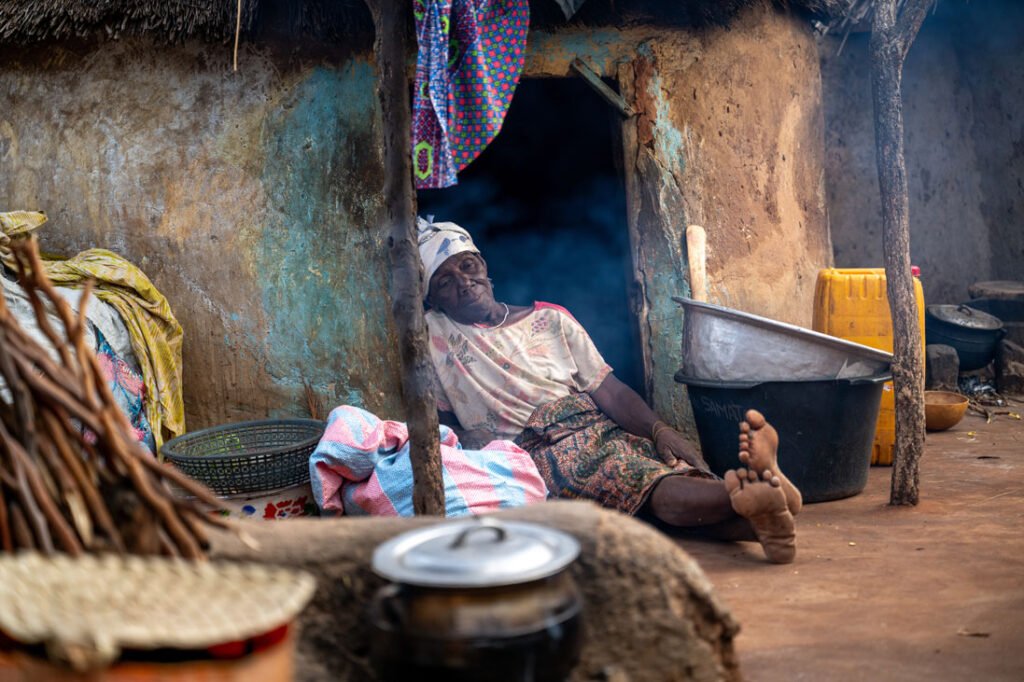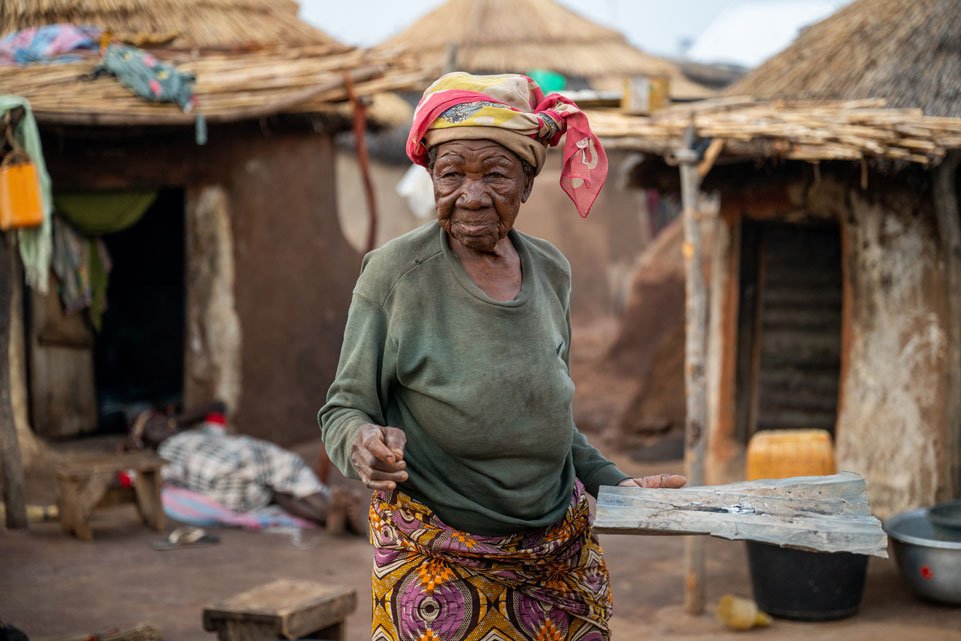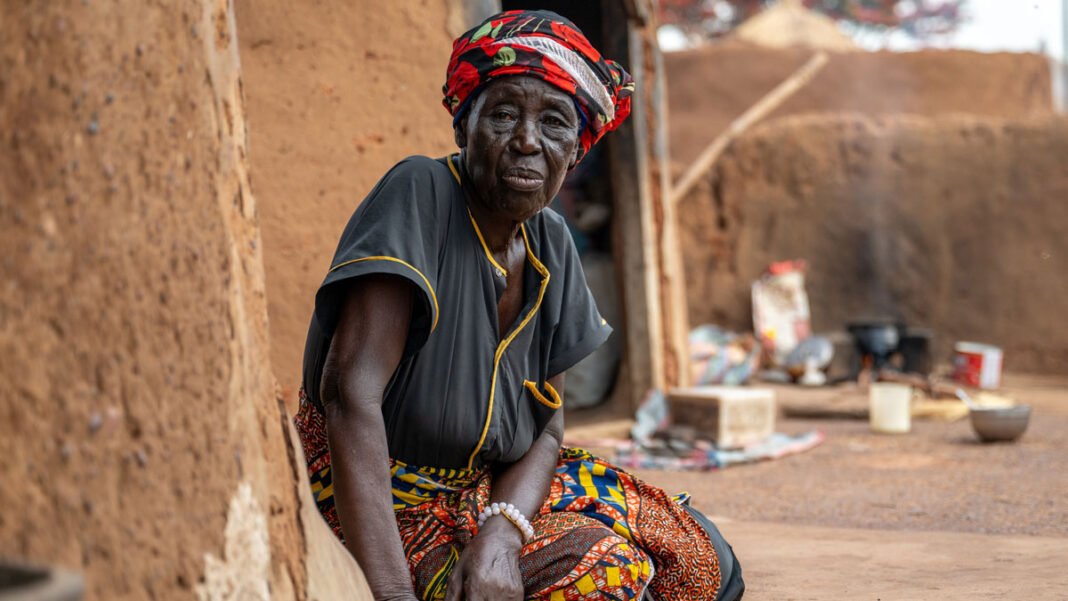This story was supported by the Pulitzer Center
By Claire Thomas and Nicholas Azebire
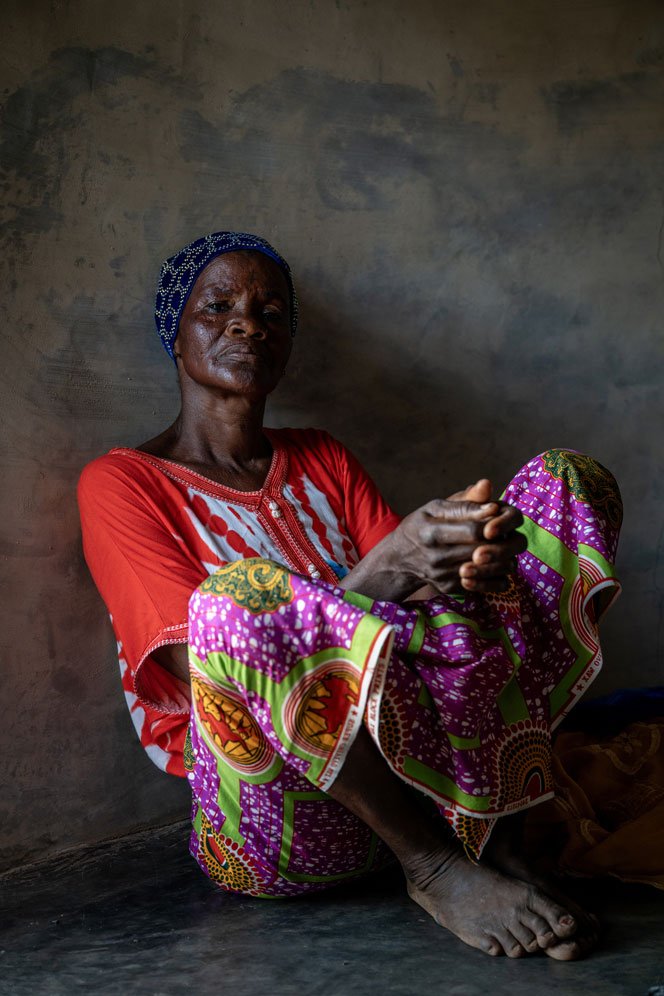
Ghana’s “Witch Camps”: A Nation at a Crossroads
In the northern regions of Ghana, hundreds of women—most of them elderly, widowed, and impoverished—live in exile in so-called “witch camps.” Accused of witchcraft by their own families or communities, they are cast out and confined to lives of isolation, poverty, and fear. These are not criminals. They are victims of deeply rooted superstition, misogyny, and social abandonment.
Underlying these accusations is a broader cultural context. Ghana is a country where Christianity and Islam dominate, yet traditional spiritual beliefs—including fear of witches—remain potent. Illness, crop failure, or even a child’s academic success can be blamed on malevolent spiritual interference. Elderly women without male protectors or resources are easy targets.
To be accused of witchcraft in Ghana is to face exile, persecution, and even death. For those deemed “guilty,” banishment to one of northern Ghana’s six so-called witch camps is often the only means of survival.
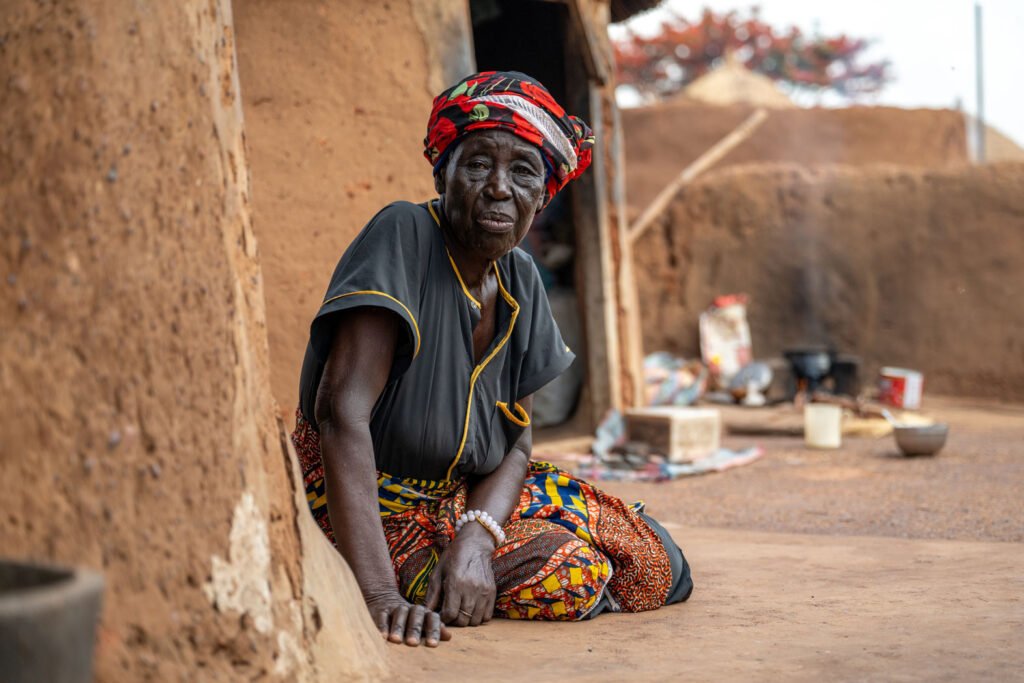
These accusations can have deadly consequences. In July 2020, 90-year-old Akua Denteh was tragically lynched in a public market square after being accused of witchcraft. The incident, which was filmed and widely shared on social media, prompted national outrage and renewed demands for legal and cultural reform.
During a visit to the Gambaga camp for women accused of witchcraft in 2009, I asked an elderly woman if she believed she was a witch. Before she could answer, my translator—a relative of the local chief—interrupted: “Of course she is. Why else would she be here?” The question was never translated. Her voice, like so many others, was silenced.
The so-called witch camps—located throughout northern Ghana—lack formal barriers or security, yet the women living there face severe restrictions on their freedom. Often confined to basic, windowless mud huts with little access to resources, their displacement stems from accusations that, once made, can permanently alter the course of their lives. Traditional rituals involving animal sacrifice are sometimes used to determine guilt or innocence, but even these do not guarantee protection or reintegration.
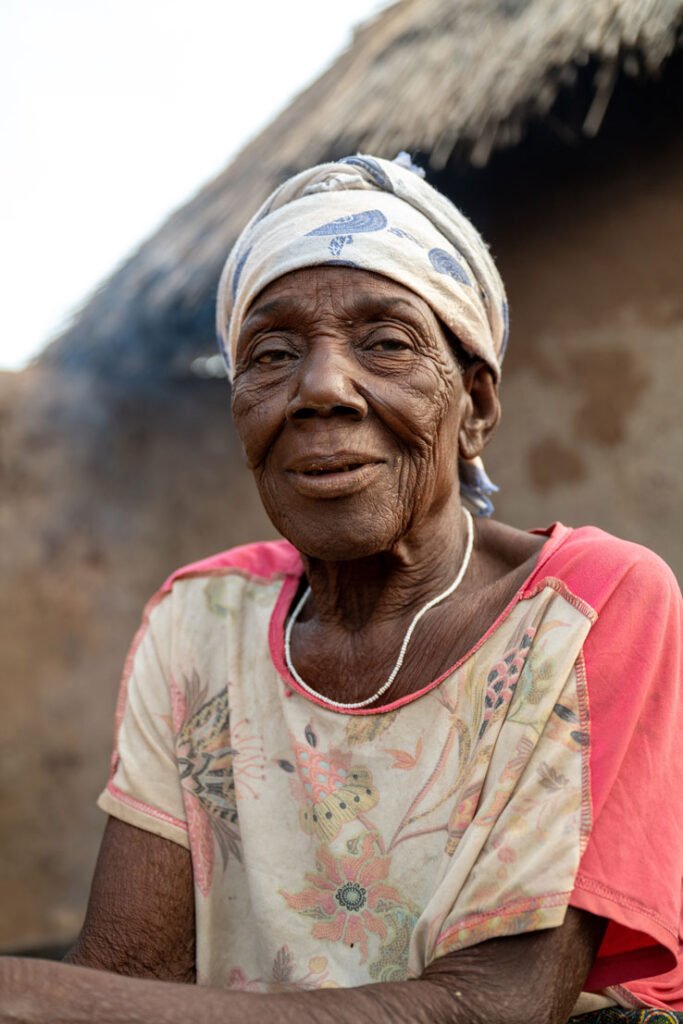
As Dr. John Azumah, Executive Director of The Sanneh Institute, explains: “The judgment is delivered not by spirits, but by neighbors. A mere accusation can ruin a life.”
“There are no physical barriers keeping the women inside,” he adds. “But cultural and psychological ones are deeply entrenched. The women are made to believe that if they leave the camp, the spirits will kill them.”
The reality on the ground is best understood through the voices of women like those I met during a visit to the Gambaga camp in May 2025, including Matis Awola, a widow in her fifties, who was accused after a man claimed to have seen her in a dream. “The next day I was called a witch. I ran to the bush and wanted to kill myself,” she recalled. Her son brought her to Gambaga, where she now works for food on a nearby farm.
The emotional and economic toll of life in the camps is evident in many testimonies. Fusheina, a widow and mother of five, has lived in the Gnani camp for the past six years. She was accused of witchcraft by the chief of her village after the sudden death of her nephew. Expelled immediately, she now lives alone. “I’m not happy because my children are not with me,” she says sorrowfully. “I just want to go home.” But returning is not an option—she fears the villagers would harm her.
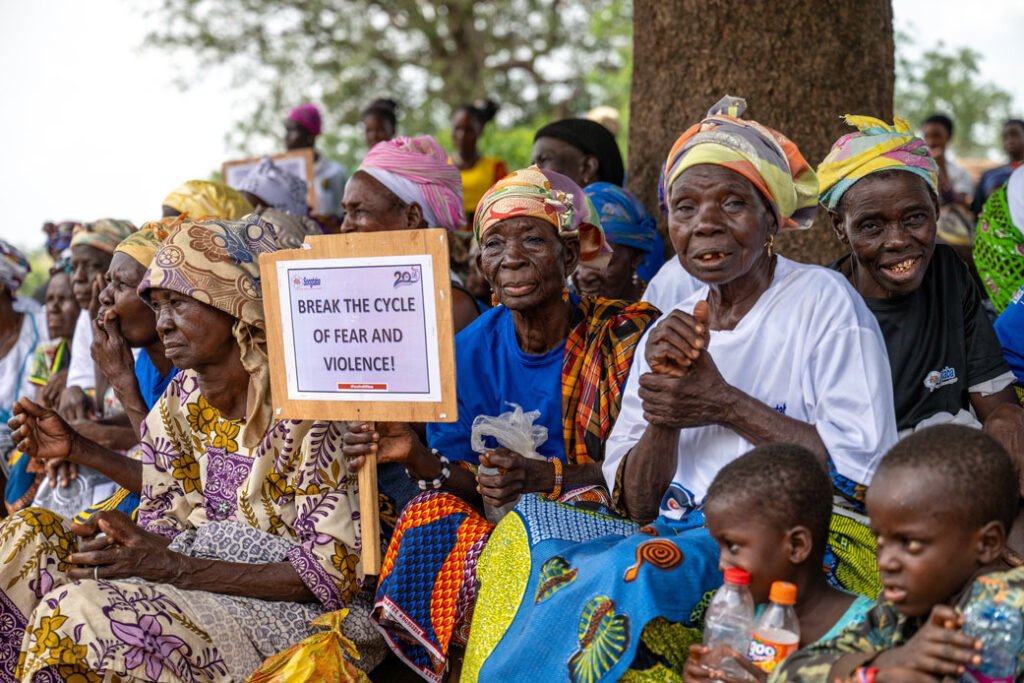
Life in the camp is extremely difficult, Fusheina adds. “There is no work. We don’t have a farm here, so we have no way of earning money.” She hasn’t seen her children in over two years.
These individual stories reflect a broader, systemic reality. The consequences are devastating. Many women have lived in the camps for decades, stripped of their dignity, their families, and their freedom—all without due process. Some arrive voluntarily, fleeing mobs with machetes or torches. Others are brought by force. All are marked for life.
Professor Azumah describes the camps as sites of systemic abuse and exploitation: “These women are used as free labor. Even aid from NGOs is often diverted by community leaders.”
The hardships extend across generations. Children are not spared. Some live in the camps with their grandmothers, facing bullying and stigma for being related to accused witches. Labeled “witches’ children,” they are often pushed out of school and forced into street labor. In some camps, disturbing reports have emerged of sexual abuse, including allegations involving religious leaders. In one particularly troubling case, a priest is alleged to have fathered children with multiple women in a camp.
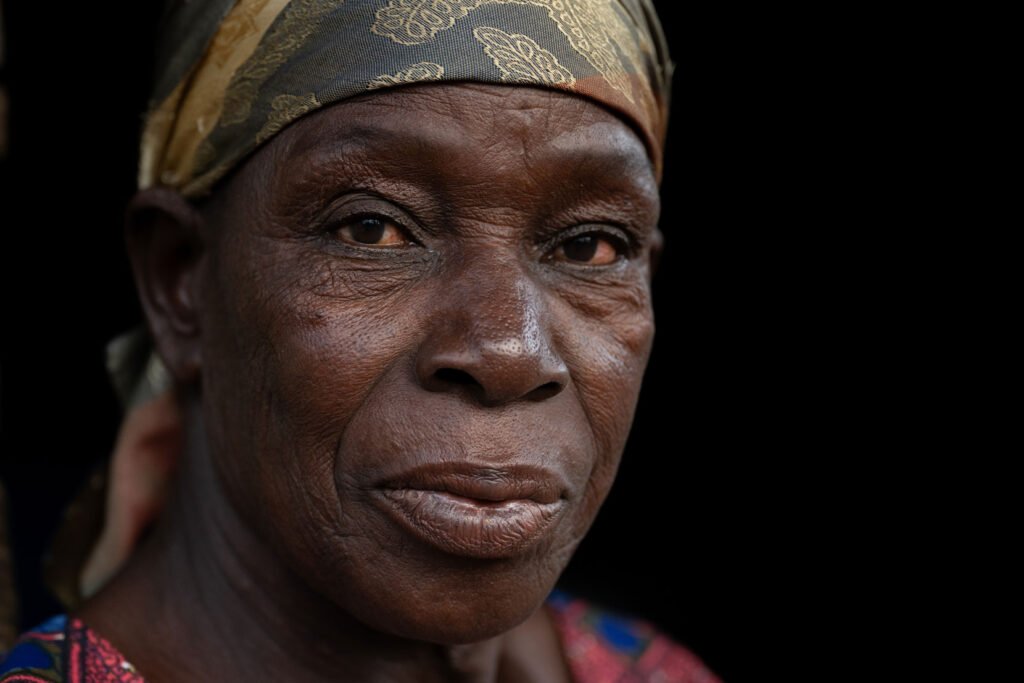
These children often struggle to access education, healthcare, and safety. Many are forced to work in local markets or on nearby farms to survive. The cycle of marginalization is inherited, and the trauma is passed down.
For women who hope to return to their communities, the path to reintegration is fraught. They must often undergo “cleansing rituals,” which can cost over 1,000 Ghanaian cedis (around $100 USD), including the slaughter of livestock. For most, this is financially impossible.
Still, efforts by NGOs, churches, and activists continue. Groups like The Sanneh Institute, Action Aid Ghana, and Songtaba offer food, shelter, counseling, and advocacy. In July 2025, these organizations came together to mark the fifth anniversary of Akua Denteh’s death with a memorial march and exhibition. Photographs of women from the camps were displayed as a visual call to action.
Amidst ongoing advocacy, change may finally be within reach. In 2023, Ghana’s Parliament passed an amendment to the Criminal Offenses Act criminalizing witchcraft accusations. And in March 2025, the long-delayed Anti-Witchcraft Bill was reintroduced, aiming to outlaw such accusations entirely, shut down the camps, and establish a legal pathway for reintegration.
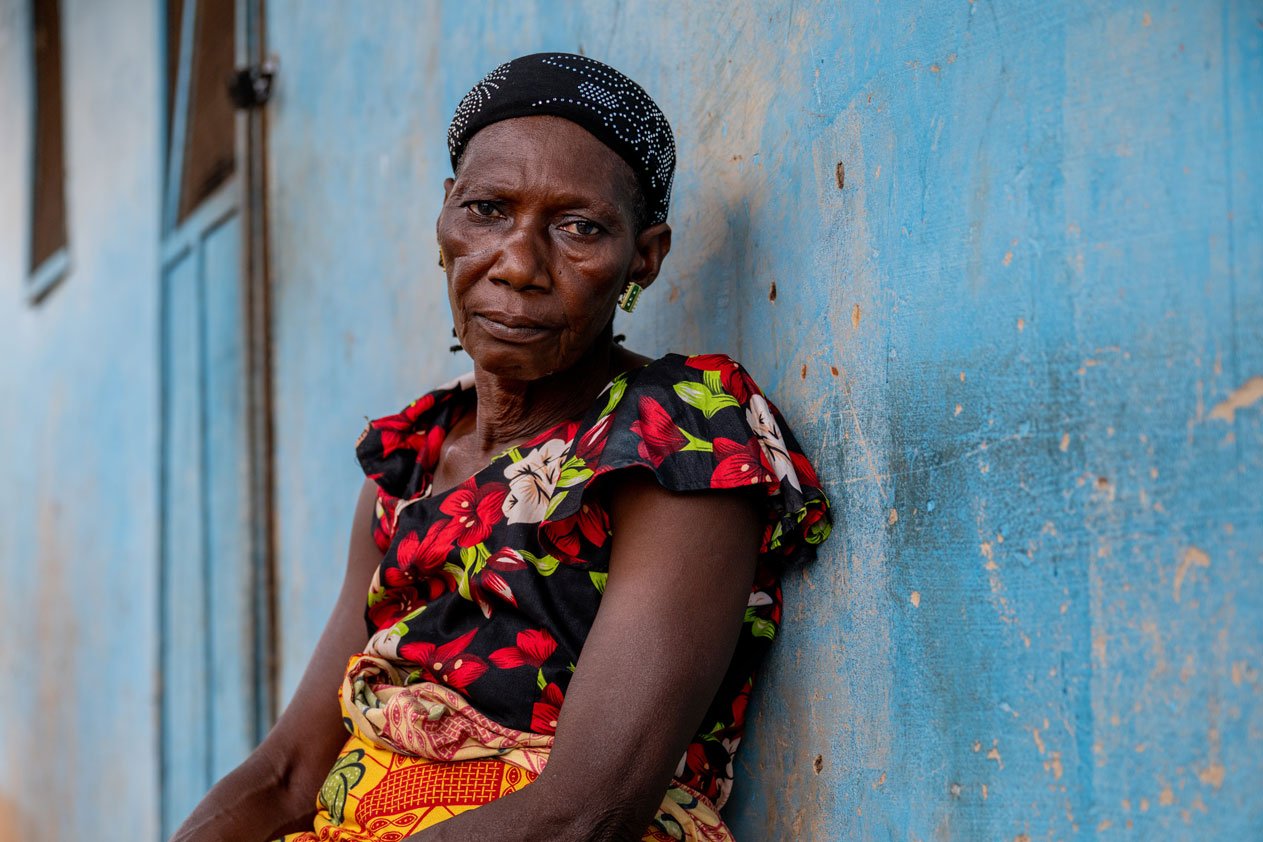
If passed, the bill would mark a historic turning point. Advocates are cautiously optimistic that it will be signed into law. However, they acknowledge that legal reform alone will not be enough. Experts, including Professor Azumah, emphasize that real progress will require not only legislation but also a broader shift in societal attitudes—supported by coordinated implementation, sustained funding, and long-term commitment from both government and civil society.
Beyond legal efforts and public policy, there are deeper human dimensions to this crisis. This story is not only about injustice. It is about resilience. Women who have suffered unimaginable trauma still speak of going home. It’s about a nation confronting the crossroads between tradition and human rights. And it’s about amplifying voices that, for too long, have been silenced.
As the memory of Akua Denteh fades from headlines, Ghana must answer a critical question: will it continue to allow fear and superstition to govern the fate of its most vulnerable, or will it choose justice, dignity, and change?
This story was supported by the Pulitzer Center
By Claire Thomas and Nicholas Azebire
